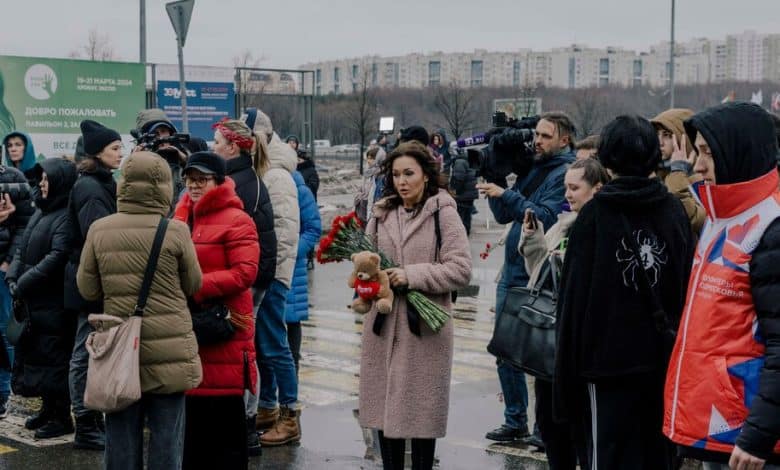Amid Questions About Security Failures, Russian State Media Focus on a Different Narrative

As Russia mourned the victims of the worst terrorist attack in the Moscow area in more than two decades on Sunday, differing narratives about the attack were spreading and taking hold in the country.
The attack late Friday on a concert hall near Moscow left at least 137 people dead and represented a significant security failure for the Kremlin. While the Russian authorities said they had arrested the four attackers, speculation over their identities and motivations was widespread. There also were open questions about whether Russia had adequately followed up on a warning from the United States about the threat of such an attack, and about how specific that warning was.
But most Russian commentators and state media devoted little time to those issues, instead pointing fingers elsewhere. The reaction reflected in part the state of anxiety that Russia has been living in since the start of the war in Ukraine, with propaganda outlets competing to advance one narrative, conspiracy theory or bit of speculation after another.
Many nationalist commentators and ultraconservative hawks on Sunday continued to push the idea that Ukraine was the obvious culprit, despite a claim of responsibility and mounting evidence that a branch of the Islamic State was responsible.
Hard-line anti-Kremlin activists speaking from abroad, meanwhile, speculated that the Russian state could have orchestrated the attack so that it could blame Ukraine or further tighten the screws inside the country.
Some lawmakers in Parliament argued that the government needed to get tough on migrants, after the authorities said that the four assailants were foreign citizens. Lawmakers also pledged to discuss whether capital punishment should be introduced in Russia.
